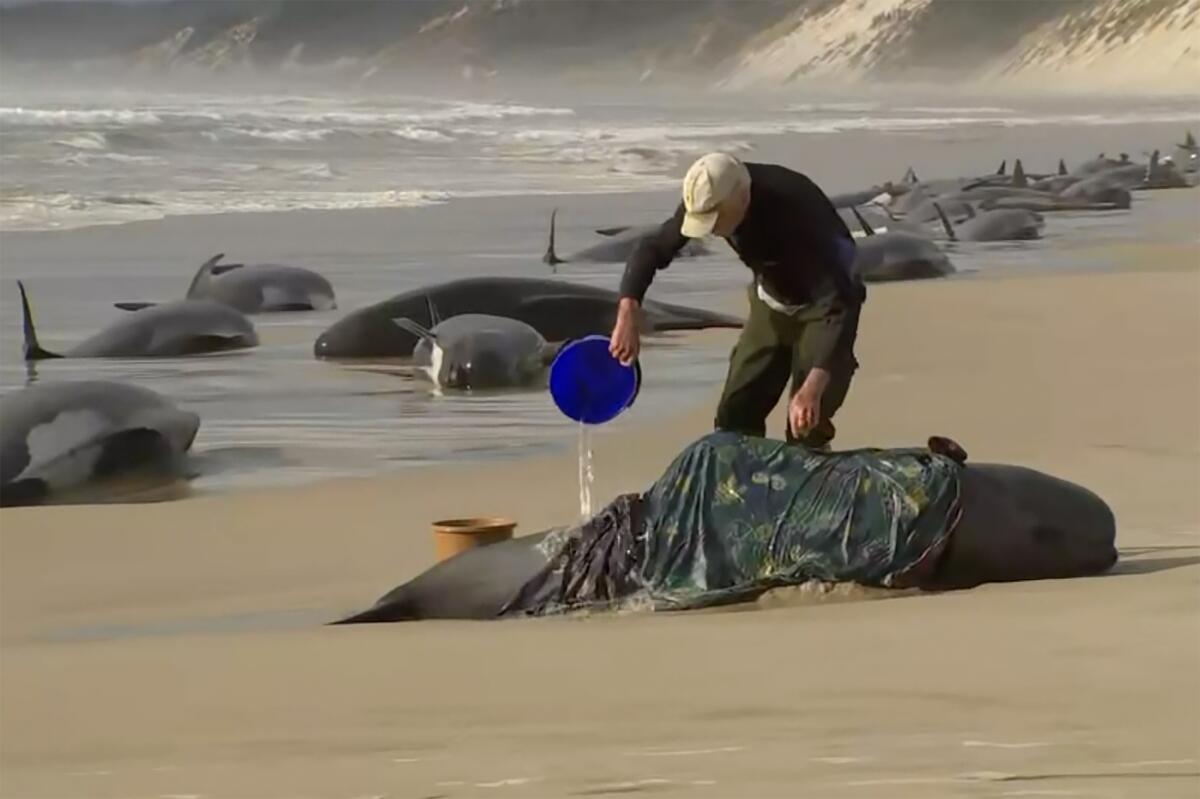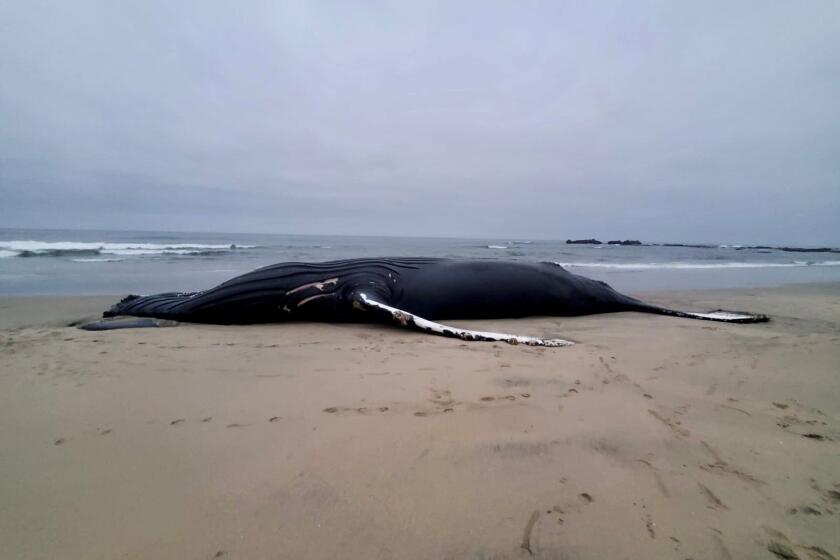More than 200 whales found beached in Tasmania; Australian rescue efforts underway

- Share via
HOBART, Australia — About 230 whales have been stranded on Tasmania’s west coast, just days after 14 sperm whales were found beached on an island off the Australian state’s northwestern coast.
The pod, which is stranded on Ocean Beach in Macquarie Harbor, appears to be pilot whales, and at least half are presumed to still be alive, Tasmania’s Department of Natural Resources and Environment said Wednesday.
A team from the Marine Conservation Program was assembling whale rescue gear and heading to the area, the department said.
The whales beached two years to the day after the largest mass stranding in Australia’s history was discovered in the same harbor.
About 470 long-finned pilot whales were found on Sept. 21, 2020, stuck on sandbars. After a weeklong effort, 111 of those whales were rescued but the rest died.
The entrance to the harbor is a notoriously shallow and dangerous channel known as Hell’s Gate.
Local salmon farmer Linton Kringle helped in the 2020 rescue effort and said the latest challenge would be more difficult.
“Last time they were actually in the harbor and it’s quite calm and we could, sort of, deal with them in there and we could get the boats up to them,” Kringle told Australian Broadcasting Corp.
“But just on the beach, you just can’t get a boat in there, it’s too shallow, way too rough. My thoughts would be try to get them onto a vehicle if we can’t swim them out,” Kringle added.
It was the 10th dead whale reported in the San Francisco Bay Area this year, and the third dead humpback whale, according to the Marine Mammal Center.
Vanessa Pirotta, a wildlife scientist specializing in marine mammals, said it was too early to explain why the stranding had occurred.
“The fact that we’ve seen similar species, the same time, in the same location, reoccurring in terms of stranding at that same spot might provide some sort of indication that there might be something environmental here,” Pirotta said.
David Midson, general manager of the West Coast Council, urged people to stay clear.
“Whales are a protected species, even once deceased, and it is an offense to interfere with a carcass,” the environment department said.
Fourteen sperm whales were discovered Monday afternoon on King Island, part of the state of Tasmania in the Bass Strait between Melbourne and Tasmania’s northern coast.
Griffith University marine scientist Olaf Meynecke said it’s unusual for sperm whales to wash ashore. He said that warmer temperatures could also be changing the ocean currents and moving the whales’ traditional food sources.
“They will be going to different areas and searching for different food sources,” Meynecke said. “When they do this, they are not in the best physical condition because they might be starving, so this can lead them to take more risks and maybe go closer to shore.”
The pilot whale is notorious for stranding in mass numbers, for reasons that are not entirely understood.
More to Read
Sign up for Essential California
The most important California stories and recommendations in your inbox every morning.
You may occasionally receive promotional content from the Los Angeles Times.














